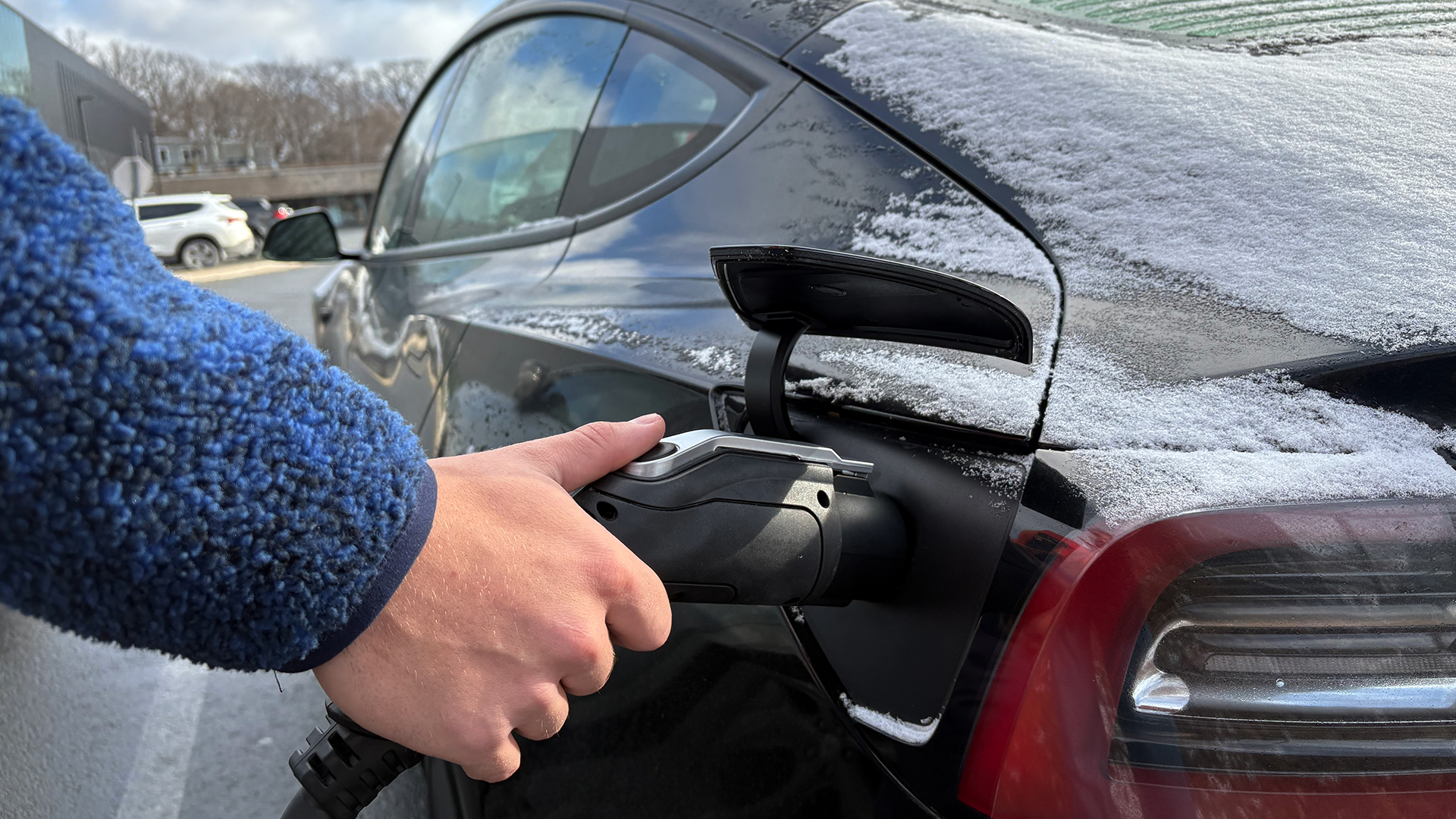Lack of charging infrastructure a challenge for Atlantic EV owners: survey
87 per cent of EV owners likely to purchase another, down 10 points from 2022, says CAA

caption
Jack Levinsky charges his Tesla electric car at Dalplex in Halifax.Driving his electric vehicle from Toronto to Halifax, Dalhousie student Jack Levinsky chose to go through Maine.
Levinsky planned his route, knowing eastern Quebec and northern New Brunswick have limited public charging stations. Maine, he says, is “much more developed in terms of charging infrastructure.”
When in Halifax, Levinsky is grateful that Dalplex, Dalhousie’s gym, has six public chargers. His car can charge while he works out, plays squash or goes to class.
The majority of EV owners in Canada’s Atlantic provinces don’t feel as lucky, according to a survey released Tuesday.
The survey by Canadian Automobile Association (CAA) suggests 68 per cent of EV owners in the Atlantic provinces are dissatisfied with the region’s public charging infrastructure. That’s the highest rate in the country, according to the survey.
The same survey suggests consumer intentions to repurchase an EV vehicle dropped from 97 per cent to 87 per cent nationally from 2022 to 2024.
Olivier Trescases, director of the University of Toronto Electric Vehicle Research Centre, says charging infrastructure is crucial to EV adoption.
“Dips in EV adoption are more related to the limitations of charging infrastructure than to the vehicles themselves,” Trescases said.
CAA’s study suggests a national need for more “robust charging infrastructure that is easily and readily accessible” in order to mitigate concerns about EV ownership.
Incentives to purchase an EV took a hit Monday with the federal government pausing a rebate program offering EV purchasers up to $5,000. Transport Canada announced the zero-emission vehicle incentive program (iZEV) has “completely committed” all available funds ahead of the program’s scheduled expiry date of March 31.
The rebate, according to a news release from Clean Energy Canada was “fundamental to helping Canadians access the huge cost saving benefits of EVs,” said Clean Energy Canada spokesperson Joanna Kyriazis in the release.
“Its termination represents a big oversight — both in terms of support for Canadians in tough financial times and for our growing EV industry,” the release said.
Trescases says EVs, despite having a higher sticker price, can offer a lower total cost of ownership.
The upfront cost however, “remains a significant disincentive to switching to EVs,” according to Trescases.
In 2022, CAA reported incentives were an important part of the decision to purchase an EV for 91 per cent of EV owners in the Atlantic provinces.
About the author

Connor Parent
Connor Parent graduated this spring with a Bachelor of Journalism (Honours) degree from the University of King’s College.
